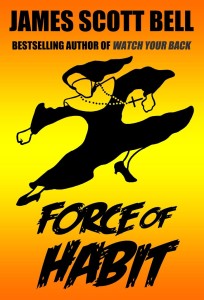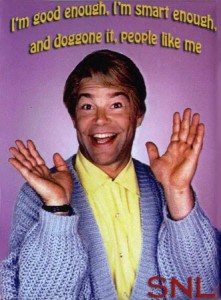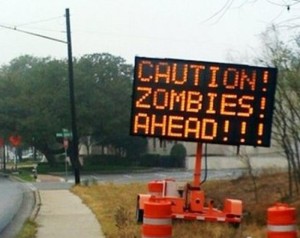By Joe Moore
Our annual first-page critique marathon continues with an anonymous submission that came in untitled. Take a look at it. My comments follow the text.
He stepped out from behind shadows cast by large oak trees, “Good evening.” Not a second passed before her smile faded. She obviously didn’t recognize him. A scream seemed to be stuck in her throat while she pulled her Publix grocery bag close to her body. She stepped away from him and when her elbow hit the wall of the house, two eggs fell out of a pink Styrofoam carton and onto the cement porch, orange yolk spraying against his polished shoes.
He felt his jaw tighten. “Open the door and don’t make a sound.” He kept both hands inside his coat pockets but gripped harder around the mallet in the palm of his right, in case she tried to run. First thing he should do is make her clean his god damned shoes.
She fumbled with the keys. She couldn’t be more than forty, but her hands shook like she was ninety years old. “I’m losing my patience with you,” he said. “Open the fucking door.” His voice sounded calmer than he felt. He wanted to crack her head open right there. Her skull would explode and her brains would splatter just like the egg yolk now drying on the tips of his loafers.
“Please. I have a brand new granddaughter I haven’t seen yet—” he shoved her inside when the key finally turned. She tripped on the corner of an area rug and the contents of her grocery bag spilled out across the hardwood floor. She crawled across the room and huddled against a wall. He shut the door and pulled down the shades.
The house brightened when he flipped on the light. It was tidy. Looked like something on the cover of Better Homes and Garden. In the center of the room, a rust colored sofa rested with a quilted afghan draped over the back. It was surrounded by dark cherry wood tables and a large grandfather clock encased in a solid oak frame.
Overall, this is not too bad, but it could be greatly improved. The setup has the same weakness as Monday’s submission—I felt like I’d seen the generic scene many times before, especially as an opening to so many TV dramas. The key to catching an agent or editor’s eye is originality—a new twist on a well-established theme. This is a basic setup but I don’t see anything new here. Not knowing anything else about the story, here are my line-by-line comments.
He stepped out from behind shadows cast by large oak trees, “Good evening.”
Ditch the comma and replace with a period after trees. Consider having him step out of or from the shadows rather than from behind them.
Not a second passed before her smile faded.
I would start a new paragraph with that line. And it reads a bit awkward to me. Under the circumstances, I’m not sure it’s even needed.
She obviously didn’t recognize him.
Does this signal to the reader that she should have recognized him? Perhaps she once knew him but he’s older or his appearance has been changed? Is he wearing a disguise? Or is his face otherwise well known or has it been on the news? Remember that the writer is laying the first groundwork here that has lasting impressions on the reader.
A scream seemed to be stuck in her throat while she pulled her Publix grocery bag close to her body. She stepped away from him and when her elbow hit the wall of the house, two eggs fell out of a pink Styrofoam carton and onto the cement porch, orange yolk spraying against his polished shoes.
I suppose that a Styrofoam container with a dozen eggs could be jarred open and have only two eggs fall out. Just being picky here, but I had to pause to picture if it were possible. Also, I assumed this is a big clue here: “polished shoes”. Does this signal that the aggressor is a well-dress villain or perhaps a neat freak?
 He felt his jaw tighten. “Open the door and don’t make a sound.” He kept both hands inside his coat pockets but gripped harder around the mallet in the palm of his right, in case she tried to run. First thing he should do is make her clean his god damned shoes.
He felt his jaw tighten. “Open the door and don’t make a sound.” He kept both hands inside his coat pockets but gripped harder around the mallet in the palm of his right, in case she tried to run. First thing he should do is make her clean his god damned shoes.
Here we go with the shoes again. And his weapon of choice is not a knife or gun but a mallet? That’s certainly different. Perhaps he just came from eating stone crabs.
She fumbled with the keys. She couldn’t be more than forty, but her hands shook like she was ninety years old.
I liked this imagery with the hands although saying he wasn’t sure of her age gives me the impression that she may have been picked at random.
“I’m losing my patience with you,” he said. “Open the fucking door.”
OK, it’s time for my speech. You can’t even begin to imagine how many potential readers you will turn off by using the f-bomb on the first page of your book. Using it proves nothing. My advice: just don’t do it. Oh, and you don’t need the “he said” here. It definitely wasn’t the victim speaking.
His voice sounded calmer than he felt. He wanted to crack her head open right there. Her skull would explode and her brains would splatter just like the egg yolk now drying on the tips of his loafers.
Boy, this guy is (1) ultra violent (2) really into his shoes.
“Please. I have a brand new granddaughter I haven’t seen yet—”
I felt like this was a strange way of saying this. It’s almost like saying, “I’ve got a brand new plasma TV I haven’t seen yet.” Rather than “brand new”, how about, “Please, I’ve got a family, a granddaughter . . .”
he shoved her inside when the key finally turned.
You mean when the key turned and the door opened. Also, it should be a capital H on he since it’s a new sentence.
She tripped on the corner of an area rug and the contents of her grocery bag spilled out across the hardwood floor. She crawled across the room and huddled against a wall. He shut the door and pulled down the shades.
The house brightened when he flipped on the light.
“Brightened” may not be the best word choice since it connotes cheerfulness.
It was tidy.
The house or the light?
Looked like something on the cover of Better Homes and Garden.
This is an incomplete sentence lacking a subject. But that’s OK if it’s a style thing the writer intends to continue throughout the story. Warning: incomplete sentences get old fast.
In the center of the room, a rust colored sofa rested with a quilted afghan draped over the back. It was surrounded by dark cherry wood tables and a large grandfather clock encased in a solid oak frame.
Very observant villain. Is this to help build his character?
———-
So here’s what I take away from this first page. We have a shoe-fetish, stone crab-eating assailant who is a possible interior decorator and who picks random, forty-something victims who buy physics-defying cartons of eggs. What a hoot it would be if I were right.
These are my personal first impressions of this sample. Other’s may disagree with me or have different reactions. I’ve been hard on this writer, more so than normal even though this is a somewhat awkward but decent first draft. All first drafts need work. And I would keep reading at least for a few more pages to see what happens.
But my comments were also meant to emphasize that EVERY WORD COUNTS. Each word is like a brick laid in place to form the strong walls of the story. Choose them wisely.
If my facetious interpretation of this first page is correct, then it’s excellent storytelling. If not, I suggest the writer go back and rework it until every word builds on top of the previous one to form a solid image in the mind of the reader. Thanks for submitting it and good luck.
How about the rest of you innocent bystanders? Would you keep reading or go out for stone crabs?





